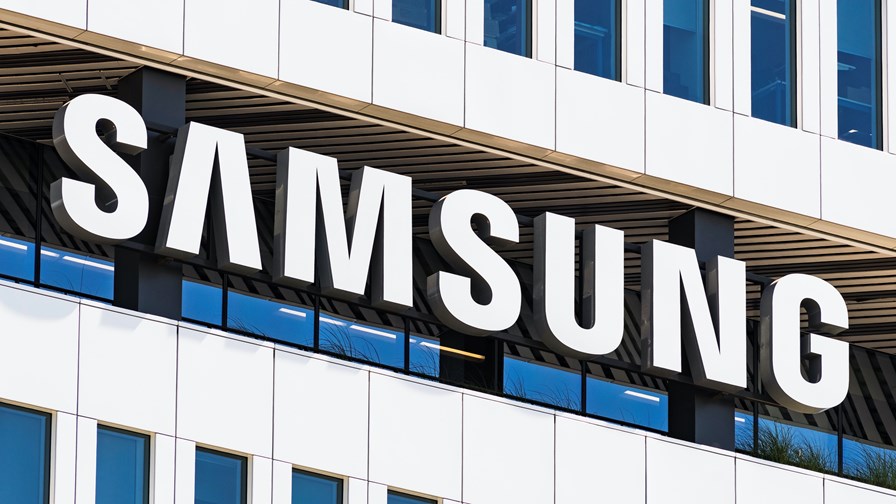
- Chip production prices set to soar
- Twilio takes a significant stake in Syniverse
- The GSMA makes a capital returns plea on behalf of telcos
Bad news for chip buyers, good news for Syniverse and the latest cry of ‘it’s not fair’ on behalf of the network operator community are our lead news items today.
As companies across multiple industries continue to feel the strain from the supply chain crisis, semiconductor providers are reportedly mulling plans to increase chip prices. Bloomberg reported that South Korean giant Samsung is discussing with foundry clients an option to increase the price of its semiconductor manufacturing process by between 15% and 20% this year, in an aim to cover increasing costs of materials and logistics, with any actual changes to be applied from the second half of the year. One of Samsung’s biggest rivals in the chipmaking sector, Taiwan Semiconductor Manufacturing Co. (TSMC) is also set to hike its charges. Last week, Nikkei Asia reported the company has issued a second price rise warning within a year, with inflation concerns and expansion plans highlighted as the factors behind such a move. TSMC’s increase would be a bit less steep compared with Samsung, though, with the media reporting a plan for single-digit percentage hikes, most likely between 5% and 8%.
Twilio has splashed $750 million to become a “significant minority owner” in Syniverse, which provides international messaging platform services to the world’s major telcos and large enterprises. The move is not unexpected, as Twilio’s investment was signalled earlier in the year when Syniverse’s plan to become a listed company via a special purpose acquisition company (SPAC) merger deal fell through. What wasn’t known at the time was exactly how large Twilio’s investment would be, as it was previously pitched as ‘up to’ $750 million. “This transaction provides Syniverse with the enhanced liquidity and financial flexibility that will enable us to accelerate investment in innovation, product quality, and breadth to benefit our enterprise and carrier customers around the world,” noted Syniverse’s CEO Andrew Davies. “Our partnership with Twilio, combined with our enhanced balance sheet following this new infusion of capital, leaves us well positioned to more effectively monetize the 5G and CPaaS revolutions, deepen our engagement with our customers across key industry verticals and create long-term value and opportunity for all our stakeholders.” Carlyle remains as the majority stakeholder in Syniverse. Read more.
The GSMA urged business leaders and policymakers to address issues stemming from what it deems as unequal financial returns along the Internet value chain. The industry association, which lobbies for telcos’ interests, has found in a new report that although there is a significant growth in the value chain (revenues nearly doubling in five years – from $3.3 trillion in 2015 to $6.7 trillion in 2020), the majority of benefits are gained by players in the online services segment. At the same time, telecom operators “building and running the connectivity infrastructure which underpins these services are not benefitting as strongly as one might expect”, it noted. The report also suggested that while telcos keep investing in “extraordinarily complex networks that enable the entire ecosystem”, low returns put a question mark over the robustness of investment in terms of capacity, coverage and speed of the networks. The organisations called on decision-makers to consider the interdependence between services making up the internet and the underlying infrastructure that connects them, otherwise the whole ecosystem could stall. See more here.
Speaking of the importance of connectivity… The US Department of Commerce (DoC) launched the governmental initiative ‘Internet for All’ which will invest $45 billion in funding for broadband access by the end of the decade. The largest portion of the programme ($42.5 billion) will go towards broadband equity, access and deployment, with additional subsidising aimed at reducing the cost of bringing high-speed internet to unserved and underserved areas, in addition to a programme to boost digital equity and inclusion. “We are going to ensure every American will have access to technologies that allow them to attend class, start a small business, visit with their doctor and participate in the modern economy”, commented DoC Secretary Gina M. Raimondo. The move is part of a $65 billion investment, outlined by the US Bipartisan Infrastructure Law, which will go towards efforts to ensure that “every American has access to reliable high-speed internet through a historic investment in broadband infrastructure deployment”. Find out more about the initiative here.
Vantage Towers, the mobile towers business spun out of Vodafone and still majority-owned by the telco, has reported an increase of 1,680 new tenancies across its portfolio during the financial year that ended in March to boost its average site tenancy ratio to 1.44, while the company also built an additional 510 macro sites during the year. Like-for-like revenues increased by 4.6% to just over €1 billion. The company expects its revenues in the current financial year to increase by between 3% and 5%. Investors were hoping for better numbers, though, as the Vantage share price dipped by 4% to €29.68 on the Frankfurt exchange. For more on the company’s performance, see this announcement.
Safaricom is reportedly looking to raise up to $2 billion from local banking and development finance institutions (DFIs) for the launch of its first commercial network in Ethiopia, which is set to happen in the upcoming months. The East African reported that the backing sought by the operator partially includes both internal funding and support form equipment vendors. The media outlet also cited Safaricom’s chief financial officer, Dilip Pal, as saying that short-term facility has been secured and now the company is in advanced negotiations for medium- to long-term options of funding. Safaricom is part of a consortium which own a permission to become the first private entry in the Ethiopian telco market. (See Vodafone consortium lands license in Ethiopia, but MTN misses out.)
Email Newsletters
Sign up to receive TelecomTV's top news and videos, plus exclusive subscriber-only content direct to your inbox.




